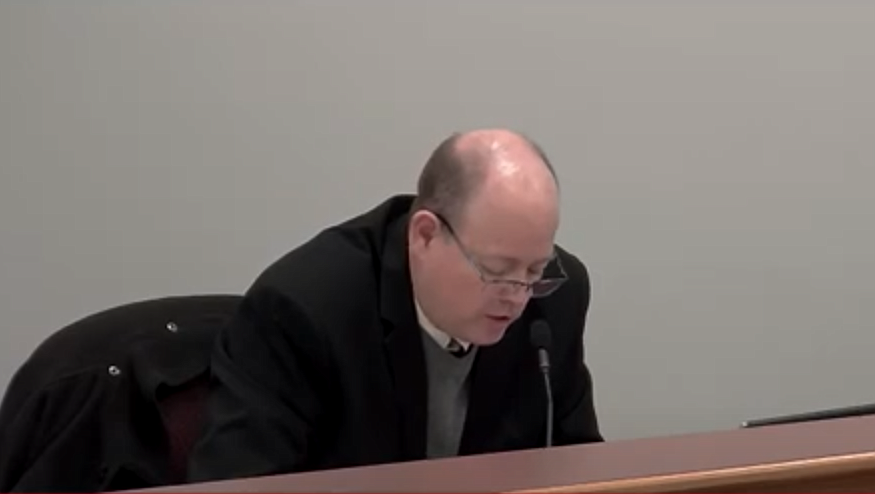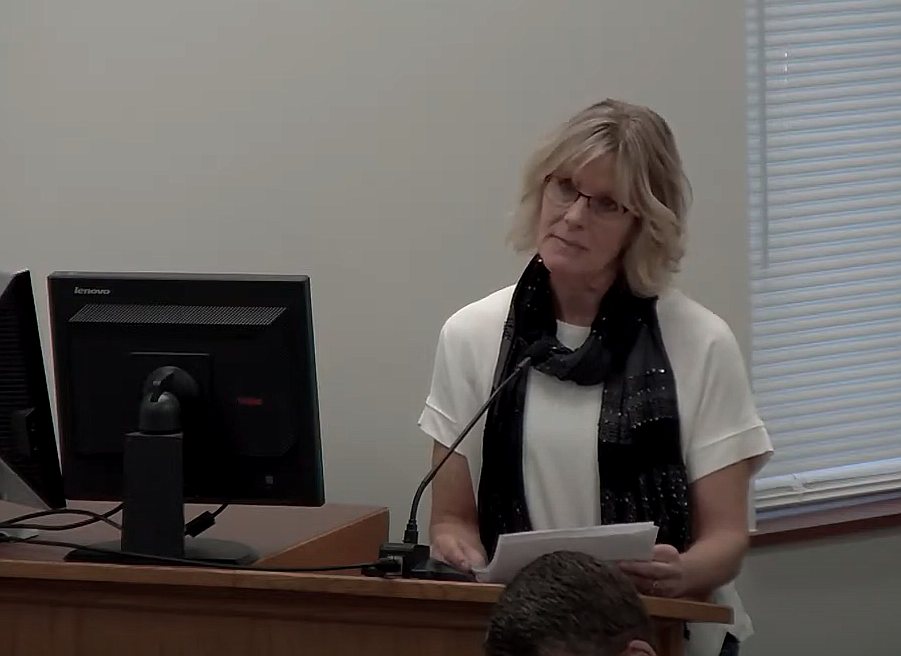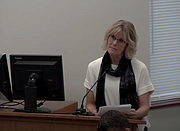Transgender bathroom bill advances in Boise
A bill that would require students to use restrooms based on their genders assigned at birth passed Wednesday out of the House Education Committee and is headed for the House floor.
The proposed legislation passed the Idaho Senate on March 9 in a 28-7 vote.
Senate Bill 1100 also calls for separate changing facilities, sleeping accommodations and use of dressing and locker rooms for biological males and females. Schools will also need to provide additional accommodations for students who are unwilling or unable to use facilities designed for their biological sexes.
The bill is sponsored by Rep. Ted Hill, R-Eagle. North Idaho senators who voted in favor include Sens. Carl Bjerke, R-Coeur d'Alene, Doug Okuniewicz, R-Hayden, and Ben Toews, R-Coeur d'Alene. Toews is vice chair of the Senate Education Committee.
Conversation surrounding the matter at the core of this legislation has been prevalent on Coeur d’Alene area social media channels for the past week.
It was a main topic Monday during the public comment portion of the Coeur d'Alene school board meeting, when Monika Klennert of Coeur d’Alene and her daughter shared testimony of a transgender student using the girls bathroom at Coeur d’Alene High School while the daughter was in the bathroom.
“How would you feel if your biological female daughter called you from school crying because a boy was in her bathroom?” Klennert said. “That’s what I experienced last Tuesday morning.”
She said no one in the school office would help her daughter and only offered for her to use a different bathroom.
“It’s not convenient because it’s farther away from her classes, so it would cause her to be tardy. She did explain that to the staffer as well,” Klennert said.
“Our daughters should feel safe in the bathrooms, they should have privacy in their most (vulnerable) state,” she said. “Does the board realize the potential financial burden the district could face if there was sexual or physical assault? Wouldn’t it make more sense to have trans students use the nurse’s bathroom since there’s fewer of them?”
She asked the board what policies it would immediately implement “so our biological females feel safe when they go into a stall to pull their pants down to do their business” and if the board would send letters home for parents to have informed consent about how these scenarios are being handled. She said at this point, school bathrooms are “nothing more than unisex.”
Klennart did not respond Wednesday to a Press request for an interview.
During the meeting, prior to testimony from Klennart and others on the topic, Coeur d'Alene Superintendent Shon Hocker addressed the incident Klennart and her daughter described. He said the administration had resolved the issue and that he could not say much more because this is a student matter.
Under the Family Education Rights Privacy Act (FERPA), only school employees with a legitimate educational need may access students' records or the information in those records. Disclosing confidential student information, including a student’s transgender status, may violate privacy laws.
"To the best of my knowledge, every transgender student that I'm aware of wants to use a private bathroom facility to avoid exactly what's happened this past week,” Hocker said. “In this specific instance, the student has recommitted to using a private restroom moving forward.”
He said principals have accommodated those requests. Hocker said he has also reviewed the transgender administrative guidelines that were approved by the school board in 2014. The document did not become policy, but was approved to provide guidelines for school staff to reference in these scenarios. The guidelines were unanimously approved by the board at that time, which included Christa Hazel, Dave Eubanks, Tom Hearn, Tom Hamilton and Terri Seymour.
According to the guidelines, "transgender" is defined as "a term that describes people whose gender identity or gender expression is different from their assigned sex at birth." The guidelines instruct staff to be vigilant for bullying and harassment that affects all students. The guidelines state schools should work closely with students and families to devise appropriate plans regarding the confidentiality of the student’s transgender status that works for the student, their family and the school. Privacy considerations may also vary with the age of the student.
Hocker, who became superintendent in 2021, said he and his administration were unaware of the guidelines until recently. He said in reviewing the guidelines and associated minutes, he believes it was the board's intent at the time to approve reasonable, alternative arrangements for transgender students regarding bathrooms and locker rooms. The arrangements include private areas, separate changing schedules or the use of single-stall restrooms.
Hocker said district principals and their assistants have worked with transgender students and their parents for decades to provide for student privacy and safety.
"This in fact is our practice for all students, transgender or not," he said. "Going forward, or until such time the board advises otherwise, or adopts a policy, this is how we'll handle such situations — case by case basis with a focus on safety for all involved."
He recommended the board use its upcoming April workshop to discuss this matter and create a policy to align with the law that, if approved by the House and Gov. Brad Little, would go into effect July 1.



